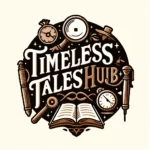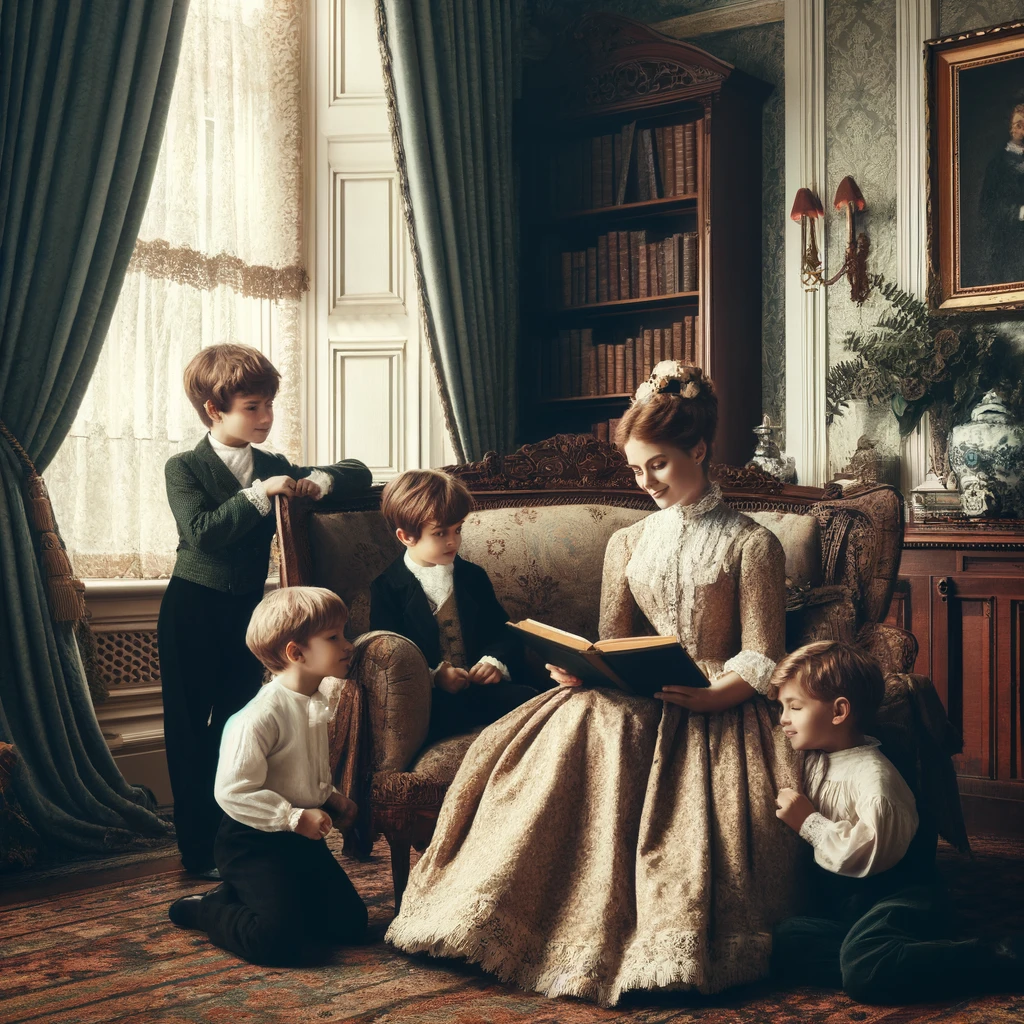In the lively spirit of playful irony that pervades “Mabel Wynn: or ‘Those Boys'” by Faye Huntington, let’s dive into this quaint, yet curiously engaging tale. The story sweeps us into the domestic yet adventurous life of Mabel Wynn, a beacon of virtue surrounded by the charming chaos of the youthful male brigade known as “those boys.”
Mabel Wynn, our protagonist, is a paragon of patience and grace, navigating the rough and tumble world of boyhood with a blend of maternal warmth and sisterly mischief. Her days are filled with the trials of managing not only the household but also the antics of the boys, each character more vividly drawn than the last. There’s the mischievous Tom, whose schemes are as grand as his heart; shy, studious Will, whose quiet demeanor masks a fierce loyalty; and charismatic Harry, a natural leader yet prone to impulsive decisions.
These boys, with their endearing flaws and youthful exuberance, provide a fertile ground for humor and heartache. The novel winks at the audience with its depiction of the chaos they bring into Mabel’s orderly world, where every day promises new adventures and mishaps. Her role often oscillates between an arbitrator of disputes and a co-conspirator in their playful schemes. It’s this dynamic that infuses the narrative with its playful irony, as Mabel, ever the adult in the room, secretly enjoys the uproarious life the boys bring.

The narrative style of Huntington is a delightful blend of earnest moral instruction and sly humor. As the omniscient narrator guides us through the events, there’s a tongue-in-cheek acknowledgment of the story’s predictability in its moral lessons, yet there’s an irresistible charm in its execution. The lessons are woven through incidents that might seem trivial at first—lost schoolbooks, a broken window, a surprise birthday party gone awry—but are revealed to be pivotal moments in the growth and bonding of the characters.
Interactions are peppered with dialogues that are at times earnest and at other times dripping with irony, reflecting the dual nature of Mabel’s world. For instance, a lecture on honesty over a lost pocketknife becomes a humorous exploration of boyish honor and the complexity of telling the whole truth, nothing but the truth, yet perhaps not immediately.
Amidst this light-hearted narrative, Huntington does not shy away from moments of poignant reflection. Mabel, in quieter moments, ponders the future of these boys, her boys, as she calls them. There’s a subtle irony in her musings about the men they will become, influenced so unwittingly by her guidance and their juvenile escapades. The story may ostensibly be about the high jinks of boyhood, but at its core, it’s a touching portrayal of the impact one individual can have on the lives of others, even amidst the comedic turmoil.
“Mabel Wynn: or ‘Those Boys'” thus serves as a delightful study in contrasts—order and chaos, youth and maturity, seriousness and humor. It captures the essence of a bygone era through the lens of a woman who finds herself the unwitting heroine in a household saga of laughter, lessons, and life. As such, it not only entertains but also gently nudges the reader towards a deeper appreciation of the everyday heroes and heroines who shape lives in the most unexpected ways.


